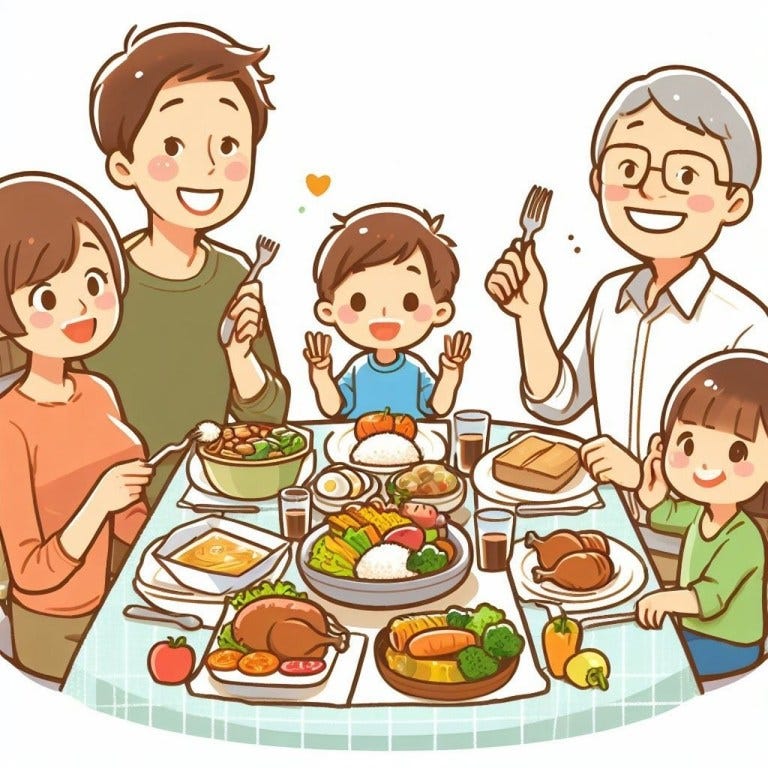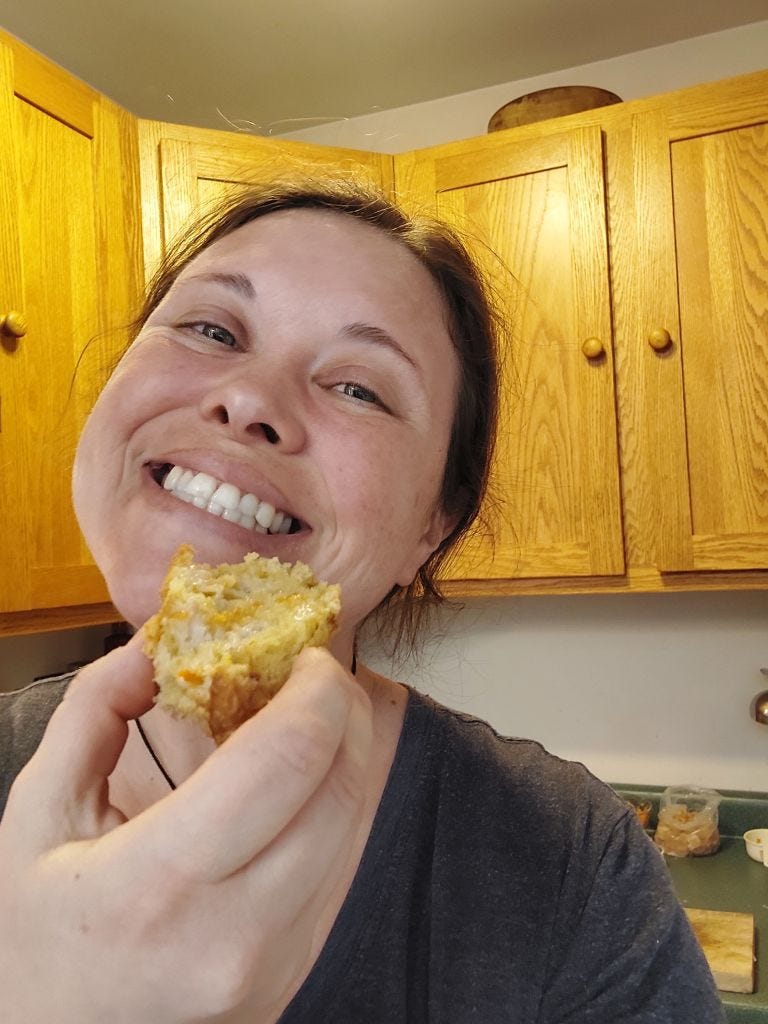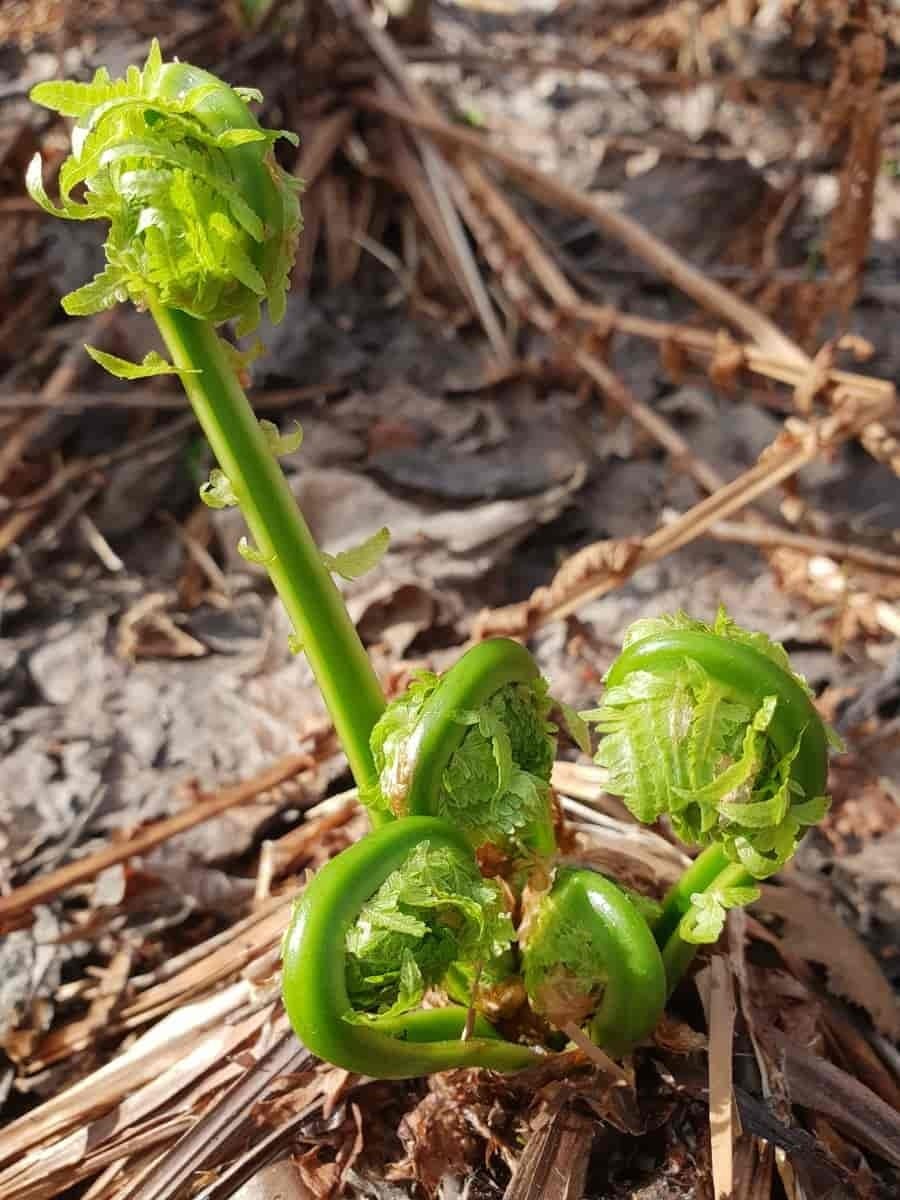When it comes to food, you have the power to affect change whenever you vote with your fork. 3 times a day, every day of every year, we’re influencing the food system. Our food choices even effect the national and global economies. All through the simple, mundane act of ordinary eating.

Welcome to the latest post from the Runamuk Acres Conservation Farm! If you are new here, read my About page to find out who I am and what I stand for. At Runamuk Acres, you’ll find the recantings of one lady-farmer and tree-hugging activist from the Runamuk Acres Conservation Farm in Maine.
Food Compulsion
The simple desire to feed my family wholesome, nutritious and delicious food was the driving force that led me first to scratch-cooking and later into gardening. The more I learned, the more I could do─and wanted to do─for myself. That food compulsion led me down the rabbit hole in pursuit of a more sustainable life, and eventually led me to farming and beekeeping.
Ever since I saw Michael Pollan’s new Netflix series “Cooked“, I’ve been thinking about food (okay, okay, I’ve always been thinking about food, lol). For those who do not recognize the name, Michael Pollan is synonymous with the local food movement. He’s the award-winning author of a number of books about our relationship with nature via food and agriculture. Two of his more popular titles are “The Omnivore’s Dilemma“, and “In Defense of Food“, both of which sit on my bookshelves.
We’re beginning to wake up to the astonishing realization that we have to think about─not just feeding ourselves─but feeding all those other selves that we move through life together with.”
MICHAEL POLLAN
The food system is broken
The bald truth of the matter is the food system is broken. Health care costs, climate change, energy independence, and security threats can all be attributed to this flawed system. Most people don’t even realize it’s a problem.

According to the Carmen G. Gozalez*, world-renowned expert in international environmental law, human rights and the environment, environmental justice and food security, food insecurity is caused by poverty, rather than food scarcity. With a global population of 7.2 billion, we currently produce sufficient food to feed a global population of 12-14 billion people. There’s enough food available to supply every person on the planet with approximately 2700 calories per day.
What’s more, because our food system has been consolidated through industrialization into a few supermarkets and fast-food companies. These corporations have set new standards for the food industry, requiring that food is produced with high standards for quality, but never abiding by workers’ rights.
According to the USDA, American farmers are currently receiving only 19-cents for every dollar consumers spend on food. The majority of farm laborers are working 12 and 14 hour days in hazardous conditions for an average of $6.18 according to the US Department of Labor, without benefits or job security.
Similarly, in order to provide the meat available at the supermarket, livestock suffer horrific conditions at concentrated feedlot operations (CFOs). Inhumane practices such as cramming animals together in too-little space leads to stressful, crowded, unsanitary conditions. Painful mutilations such as cutting off the horns of cattle, cutting off the beaks of chickens, and docking the tails of sheep, pigs, and indoor feedlot cattle are routinely performed. Rarely with any sort of anesthetic.
The current system also requires copious amounts of fossil fuels in the form of chemical fertilizers, pesticides, and fuel to transport these foods worldwide. As a result, the agricultural sector is actually contributing more greenhouse gas emissions than our transportation sector.
We’ve even seen a tragic loss of skills, tradition, and community associated with the food system. Many people don’t even know how to cook the variety of foods available to them. In a survey performed in 2015 Americans spend an average of 6.5 hours per week preparing meals, while people in India and the Ukraine spend 13.2 and 13.1 hours. This not only negatively impacts our health, but also our sense of family and our participation in our local community.
How did we get here?
In 1790, before the onslaught of the Industrial Revolution, 95% of the population lived in rural areas of the country. Over the course of the 19th century many people moved to urban areas for work. By the early 1900s, 40% of Americans lived in cities. In an effort to meet the growing urban demands food producers increased output, utilizing industrialized methods of mass production that radically transformed the food system.
Roosevelt’s advisers believed the Great Depression was in part caused by the high production of farmers. The supply was greater than the demand, resulting in a drop in prices. To re-establish a balance, the administration crafted the New Deal, offering payments to farmers in exchange for taking a portion of their land out of production.
World Wars I and II had an impact on the American food system as well. Civilians were required to modify their eating habits to consume more fresh foods like produce, eggs, and dairy─foods that could not be shipped to the warfront.
With an army to feed, the food industry began developing new processed food replacements for soldiers. When the war ended, the food industry then sought new markets for those products, calling them “convenience foods” and targeting the American housewife. Since then the market for processed food products has grown exponentially.
Post-war, soldiers returned to their farms with new knowledge and skills. New technologies and the availability of cheap fossil fuel (the key ingredient in synthetic fertilizers and pesticides) led to a tremendous increase in the productivity of the American farmers.
Yet, serious challenges drove millions of farmers to seek work in town or in the cities. Over the next couple of decades, farms were consolidated and became more specialized. In 1900 farms produced at least five of the seventeen major crop commodities, but in 1992 most farms were only producing two.
The processing of food has continued to be an extremely profitable endeavor. Growth of these large-scale, vertically integrated food production businesses was encouraged by US agricultural policy and market competition. Bankers monetized the world’s food supply, making food just another thing that could be speculated on for a profit.
Note: A vertical production business is when the supply chain of a company is also owned by that company – ie: Tyson chicken.
We now have this industry which is deliberately trying to sabotage the practice of cooking. These corporations go to great lengths to convince us that cooking is a difficult, time consuming and messy task. They want us to believe that we’d be better off letting them do the work for us. For the food industry, cooking traditional foods at home is an obstacle to their product. There is a vested interest in destroying food culture altogether.
To cook or not to cook?
Our response to that question comes with unintended consequences. Cooking has become optional. We’re no longer required to cook, and whether they don’t have the time, the skill or the inclination, many people are choosing not to cook. Every time we eat, however, we’re casting a vote and we have to accept the consequences of these votes. The importance of cooking should not be overlooked.
We are the species who cooks. No other species cooks; when we learned to do this, that is when we became “human”.
MICHAEL POLLAN
According to Richard Ringham, a biologist at the University of Berkeley in California, humans are biologically adapted to eating our food cooked. Homo erectus is the ape that has become human─with smaller mouths and teeth than apes, and weak muscles for chewing.
Compared to our ape ancestors, our brain size increased significantly, and this organ requires a tremendous amount of energy. It was essential that we save our energy for brain functions rather than for chewing and digesting. Ringham says that humans evolved when an ape learned to cook. Cooking relieves us of the burden of chewing a lot.
Our response to that question comes with unintended consequences. Cooking has become optional. We’re no longer required to cook, and whether they don’t have the time, the skill or the inclination, many people are choosing not to cook. However, every time we eat, we’re casting a vote and we have to accept the consequences of these votes. The importance of cooking should not be overlooked.
Human culture has evolved and advanced technologically through cooking. Take cooking with water, for example. Because you cannot cook with liquids until you have pots that can withstand fire, ten thousand years ago we developed clay-fired pottery. Suddenly we were able to do amazing new things with our food. We could mix flavors, use herbs and spices. There were many foods we couldn’t even eat until we had fire and water to soften them. That was how we came to have cuisine.
Food and cooking makes us who we are. Entire cultures are developed around the foods and flavors available in the region, and lend themselves naturally to tradition. Here in Maine lobster, potatoes and fiddleheads are just a few of the foods that make up our food culture. While in India, known for its spice trade, their cuisine is characterized by the extensive use of various Indian spices and fresh produce.
There are lots of things we’ve outsourced to corporations─things we no longer do for ourselves. I’m perfectly happy to allow corporations to make my toilet paper, but cooking is not like that. Cooking draws us together. It fosters love and a sense of community. We all have powerful memories of being cooked for, and those acts of generosity and love run deep within us.
Food is not just a thing or a product. Food is the direct relationship we have with other species in nature and with the world around us. We are also a part of nature, and we have a part to play in the food chain.
Pollan goes on to say:
The cook stands in a very interesting relationship to the world. On one side he looks toward people and community, family─giving this incredible gift of love which is the meal. But on the other side, you’re looking to nature, working with plants and animals. And you reconnect to the fact that the industry doesn’t feed us. Nature does.”
Waking up
The local food movement is growing. Even in the face of the pervasive financialization of food, nearly 80% of Americans say that sustainability is a priority to them when purchasing food. There are 8400 farmers’ markets listed in the USDA’s National Farmers’ Market Directory. Even mainstream supermarkets now market organic and local products. Sales of organic food is approaching $40-billion a year. While “local food” is harder to quantify, statistics gauge that around $7-billion and north of $50-billion in economic activity is in one way or another opposing the conventional food system.
The global food crisis can only be solved if we can get the bankers out of the system and begin to regulate the $648-trillion global derivatives that have made food into a speculative buy. We need the government to stop subsidizing the major crops and level the playing field for organic and small farmers.
These changes need to come from the coalescence of a broad-based political movement based on reforming the food system, but that has yet to happen.
Vote with your fork!
Every day, 3 times a day, we can vote for the kind of food system we want through our food choices. By making the choice to eat real food (ie-food that hasn’t been processed beyond recognition)we’re taking a stand against the industrial system. We can opt to purchase ingredients and make the time to actually cook a meal. We can learn to cook more things for ourselves or to cook more often. And then we can share that that independence with friends and family to spur the movement on.
Once we get used to cooking for ourselves we can take it a step further. Through our food choices we can vote for the kinds of farms we want to support. We can give our money in support of an industrial farm thousands of miles away with farming practices we don’t want to think about. Or we can choose to shop with farms closer to home. We can get to know our local farmer and how he or she produces the carrots or the herbed-chevre we love so much.
We have the power to make a difference and it starts right at home. Making the choice to buy real food doesn’t mean it will always be a perfect meal. It just means it will be real food. Give it a try. Go vote with your fork today!!!
References & Recommended Reading
Carmen G. Gonzalez, World Poverty and Food Insecurity, 3 PENN. ST. J.L. & INT’L AFF. 56 (2015).
Michael Pollan Articles – via Michael Pollan’s website; peruse the archives of his articles here.
Bet the Farm: How Food Stopped Being Food – a book review via Sustainable Table.
Our Broken Global Food System – article from Scientific American.
How Industrial Food Impacts Your Health – via Sustainable Table.
Six Reasons Why Food is a Really Big Deal – via The Conversation.
A Sustainable Food System Could Be a Trillion-Dollar Global Windfall – recommended reading via the Huffington Post.
Big Food Strikes Back: Why did the Obamas fail to take on corporate agriculture? – NYTimes article written by Michael Pollan.





Sam, this was incredibly well thought out and presented! I still don't know how you find time to give us the posts you do while running a whole farm and cooking food. I wish everyone would appreciate "the system" the way you do.
And BTW, love the candid photo of stuffing your face 😂 It's a breath of fresh air!